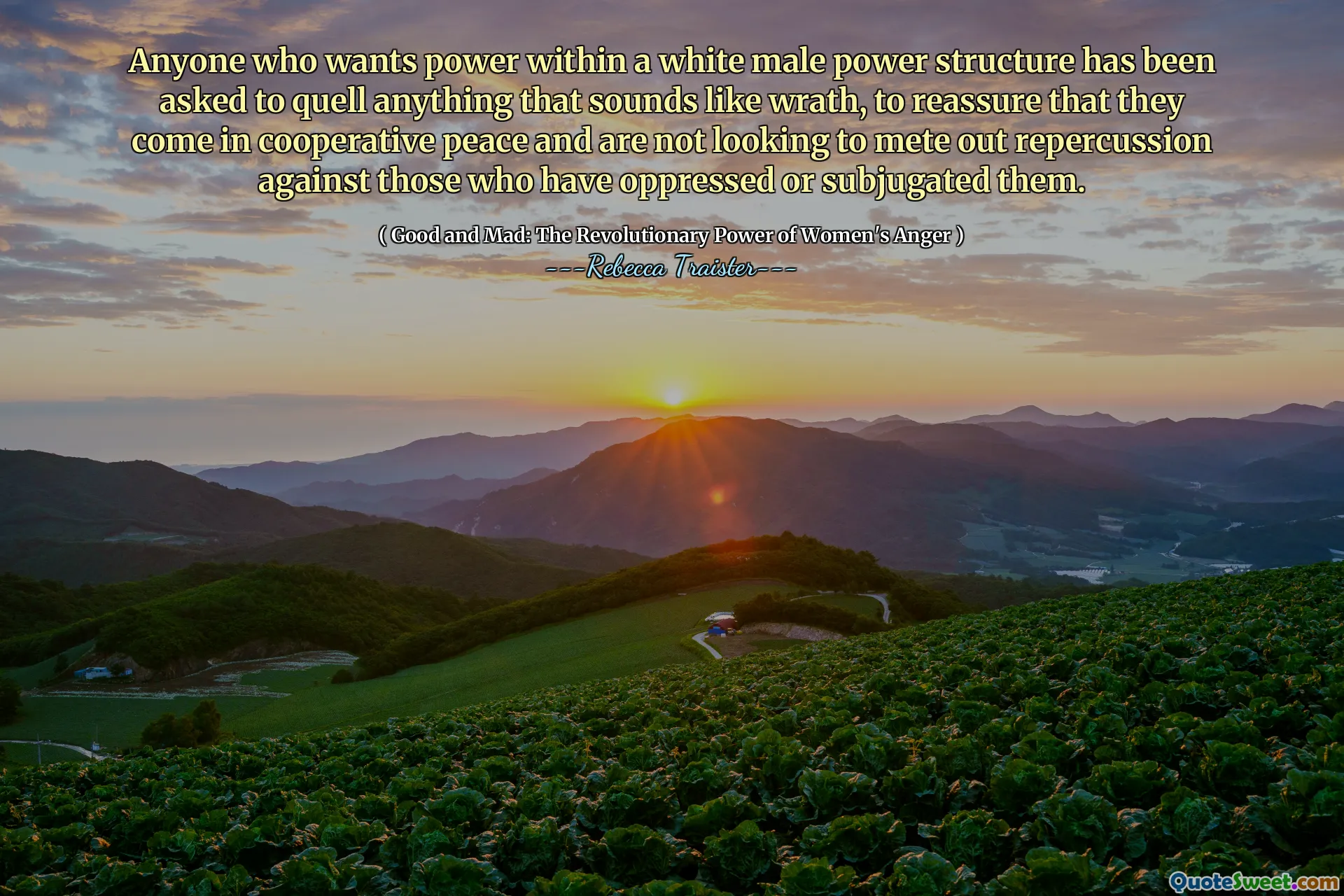
Anyone who wants power within a white male power structure has been asked to quell anything that sounds like wrath, to reassure that they come in cooperative peace and are not looking to mete out repercussion against those who have oppressed or subjugated them.
In "Good and Mad: The Revolutionary Power of Women's Anger," Rebecca Traister discusses the challenges women face when seeking power within predominantly white male structures. She highlights a societal expectation for women to suppress their anger and present themselves in a conciliatory manner. This pressure serves to maintain the status quo and stifle any potential repercussions against those in power who have historically oppressed marginalized groups.
Traister argues that this dynamic limits women's agency and the legitimacy of their anger. By emphasizing the need for women to navigate these power structures without expressing their frustrations, society inadvertently diminishes the transformative potential of their emotions. The book advocates for recognizing and embracing women's anger as a vital force for social change rather than something to be subdued.











